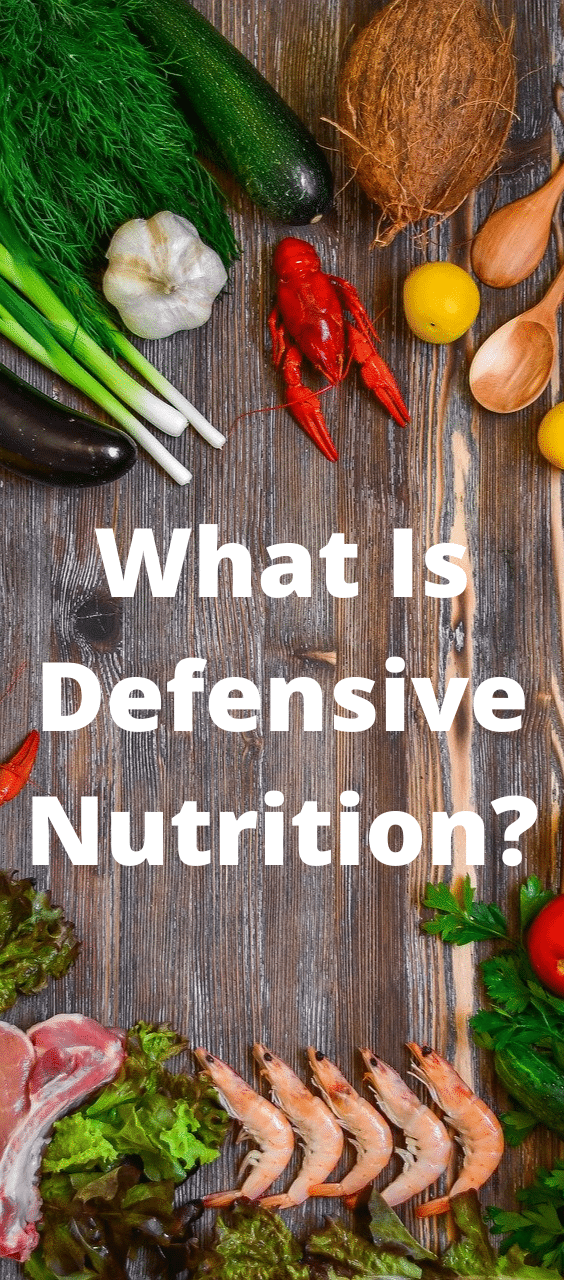How is your diet these days? Do your meals center around the purpose of sustainment or the feeling of satisfaction? Are your meal plans focused on weight loss or consumed with calorie counts? If your answer to any of these questions is yes, you may be missing out on key nutrition or defensive nutrition.
What Is Defensive Nutrition
Defensive nutrition or eating lifestyle not only focuses on portion control and mindfulness but there is an emphasis on the consumption of adequate fluids, fruits, vegetables, legumes, whole grains, and foods that are rich in omega-3 fatty acids. Defensive eating focuses on consuming foods that do not increase inflammation, add to the woes of insulin resistance, or enhance the risk of cancer.
Defensive nutrition focuses on making better food choices with the mindset of protecting your body from harm.
Defensive nutrition is not a diet but a way of life. You do not eliminate any food groups. You choose the foods that have the most nutritional value, and you maintain portion control.
Defensive Nutrition and Critical Ingredients
Your goal is to eat five to ten servings of vegetables and fruits each day. Fruits and veggies are vital because they contain phytonutrients. Phytonutrients are chemicals available in plants that help to keep them fresh and healthy.
The reason these compounds are essential is that they possess anti-inflammatory and antioxidant properties. They can help to boost your immune system, protecting you from infections and illness. Common phytonutrients are carotenoids, glucosinolates, phytoestrogens, resveratrol, and phytoestrogens.
You want to limit your intake of sugar, fat, and salt. These three ingredients together may generate feelings of pleasure in the brain and gut, but it is addictive and can wreak havoc on the overall health of your body.
According to the National Heart, Lung, and Blood Institute, if we reduced our salt intake by 50%, we could save more than 150,000 lives and approximately $26 billion in a single year.
Try to avoid foods that are processed or contain an inexorable amount of trans fats. Transfats are humanmade fats that preserve the shelf life of foods. This ingredient can raise your bad cholesterol and lower the good cholesterol, increasing your risk for conditions like heart disease or stroke.
Read Your Labels
Read your nutrition labels as this will help you to become more aware of how much nutrition is present or is missing from your food. Too many chemicals in your product can impact the degree of nutrition that is available if you are not careful.
Do Not Minimize Your Fluids of Choice
Unless you are drinking plain water, you will also need to evaluate the beverages you are consuming. Pay attention to labels here as well as some drinks –including alcohol ripe with sugars, additives, and preservatives.
Plan Ahead for Eating Out: Your Goal is to Eat Better
Eating out should not be your get out of jail free card. Defensive nutrition is applicable in this space as well. You will want to pay attention to the creams and sauces used on your food. Be wary of your bread consumption as this can lead to excessive calorie and sugar consumption.
Practice Mindful Eating
Another component of defensive nutrition is mindful eating. Take steps to be aware of the foods you are consuming, the rate at which you are eating, and the taste of each bite. To effectively achieve mindfulness, you may have to get rid of distractions around you including the television, your phone, and any other portable devices that might take away your awareness or the moment.
In summary, defensive nutrition enables you to prioritize your health through purposeful eating that centers around your health. You have the power to make decisions about the kind of food and drink that you put into your diet that is not only about filling your belly but instead is more about warding off illness, disease, and inflammation.
Liked this article? Share it to say “thanks!” Your support is much appreciated!
I would love to connect with you!
You can find me on TWITTER1, TWITER2, INSTAGRAM FACEBOOK, PINTEREST








